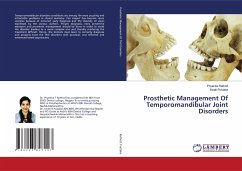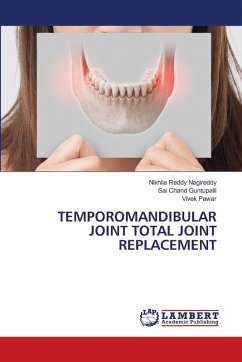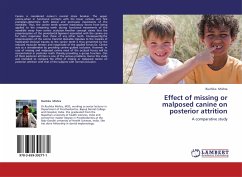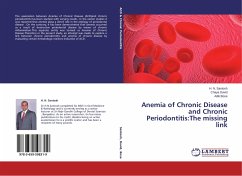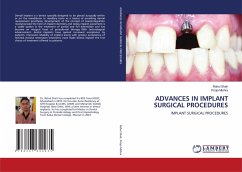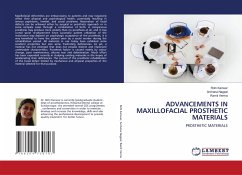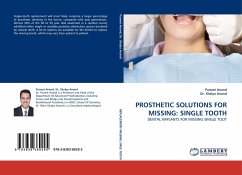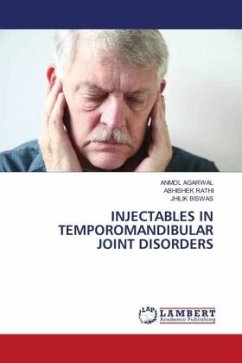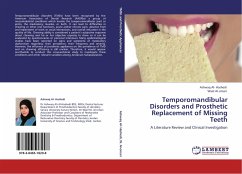
Temporomandibular Disorders and Prosthetic Replacement of Missing Teeth
A Literature Review and Clinical Investigation
Versandkostenfrei!
Versandfertig in 6-10 Tagen
39,99 €
inkl. MwSt.

PAYBACK Punkte
20 °P sammeln!
Temporomandibular disorders (TMDs) have been recognized by the American Association of Dental Research (AADR)as a group of musculoskeletal conditions which involve the temporomandibular joint or joints, the masticatory muscles, or both. It can lead to difficulties in chewing or other oral functions, acute and/or chronic pain, absence from and impairment of work or social interactions, and overall reduction in the quality of life. Chewing ability is considered a patient s subjective response about chewing and his or her objective capacity to chew so it can be evaluated by questionnaires or pers...
Temporomandibular disorders (TMDs) have been recognized by the American Association of Dental Research (AADR)as a group of musculoskeletal conditions which involve the temporomandibular joint or joints, the masticatory muscles, or both. It can lead to difficulties in chewing or other oral functions, acute and/or chronic pain, absence from and impairment of work or social interactions, and overall reduction in the quality of life. Chewing ability is considered a patient s subjective response about chewing and his or her objective capacity to chew so it can be evaluated by questionnaires or personal interviews. Many epidemiological studies have been reported on signs and symptoms of masticatory dysfunction regarding: their prevalence, their frequency and severity. However, the influence of prosthetic appliances on the prevalence of TMD and on chewing efficiency is still unclear. Therefore, it would appear worthwhile to conduct this cross-sectional study to investigate these conditions and other relevant variables among Jordanian Subpopulation.



